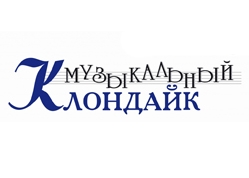Russian Federation Myaskovsky. Dialogues – A Dialogue with Fate: Alexander Ramm (cellist), Sverdlovsk Philharmonic Choir, Ural Academic Philharmonic Orchestra / Dmitry Liss (conductor). Livestream on the Virtual Concert Hall from the Sverdlovsk Philharmonic Hall, Yekaterinburg, 13.3.2021. (GT)
Myaskovsky – Cello Concerto in E minor, Op.66, Symphony No.6 in E minor, Op.23
The last concert in this celebration of Myaskovsky’s music (click here) ends with his most popular Cello Concerto and his most important symphonic work, the Sixth. Both are in the key of E minor interestingly. We hear the distinguished symphony orchestra who have already recorded this symphony for Warner Classics. Of course, one would have thought that the honour of marking Myaskovsky’s 140th anniversary would have taken place in one of the two preeminent musical centres in Russia. Most certainly the organization and planning of the Myaskovsky. Dialogues cannot be praised highly enough. To put on such a festival devoted to one composer is phenomenal during a worldwide pandemic; the weekly international discussions with musicians and musicologists were broadcast on national TV and online, assisted by the exhibition of photographs and scores, and the thought given to the concerts – particularly the one devoted to the friendship between Prokofiev and Myaskovsky – has been stimulating.
There has been a tradition here of holding festivals devoted to a single composer since the 1990s including surveys of the creativity of Kancheli, Gubaidulina, Silvestrov, and others. When the Sverdlovsk Philharmonic was established 85 years ago, the music of Myaskovsky was regularly performed. Many music festivals worldwide can explore the way this festival has been planned and organised and take up some of the innovative ways in presenting a composer’s music. Certainly, this is a sign that this city takes the arts seriously and is prepared to invest in the region’s art projects. The city of Yekaterinburg awaits a new concert hall in coming seasons; in 2018, the British/Iraqi architect firm Zaha Hadid won the competition to build a state-of-the-art venue here. It was scheduled to be ready in 2023, however, it has been delayed because of the pandemic, but certainly this project with its two concert halls will place the city among the top music centres of Russia.
Dmitry Liss studied with Dmitri Kitajenko at the Moscow Conservatoire and has been the Chief Conductor of the Ural Philharmonic Orchestra since 1995 following his winning of the Lovro von Matačić Competition in Zagreb. Liss shares this position with that of Principal Guest Conductor of the South Netherlands Symphony Orchestra. His recording of Myaskovsky’s Sixth and Tenth symphonies on Warner Classics have been highly acclaimed.
Born in Vladivostok, Alexander Ramm studied with Professor Natalia Shakhovskaya at the Moscow Conservatoire, and with Frans Helmerson at the Hanns Eisler Hochschule für Musik in Berlin. In 2015, he won the Silver Medal at the Tchaikovsky Competition, and the Beijing Cello Competition in 2010. He plays on a Cremonese instrument made by Gabriel Jebran Jakub. In recent seasons he has performed worldwide with some of the finest orchestras and has recorded Shostakovich’s Second Cello Concerto on the Melodiya label with Sladkovsky and the Tatarstan National Symphony Orchestra.
Myaskovsky’s Cello Concerto (1944) is the composer’s most popular orchestral piece; there are three recordings by Rostropovich and a further seventeen recordings available. Only the Second Cello Sonata is more popular – another piece championed by Rostropovich. Here, the concerto’s opening Lento ma non troppo, started on a foreboding idea on the cellos, and was picked up elegiacally by Andrey Postoyev’s bassoon, before Ramm captured the theme in an intensely performed passage. The cellist was accompanied by the flutes and oboes and the mood became more optimistic and was boosted by fine oboe playing by Alexander Kudinov unfolding imagery of a landscape bathed in sunlight after the clouds have passed by. Ramm returned with a brief reflective cadenza and some enchanting interplay with playful, exuberant woodwind, all performed with great virtuosity leaving a feeling of enlightenment at the close of the movement. The Allegro vivace opened with pizzicato violins followed by briskly dramatic playing on the double basses and horns allowing Ramm to introduce delightful arpeggios on the cello. A more dynamic idiom unfolded heard somewhat excitedly in the woodwind. The cantilena from Ramm revealed an achingly beautiful theme, accompanied by the virtuosic oboe and clarinet, and a prolonged passage with a strikingly gorgeous idea was picked up by the orchestra. The brass reprised the first movement’s elegiac theme and was given vivid colours by the flutes, whilst the horn reprised dramatic unease in supporting a somewhat tentative solo cello passage, and finally a brass chorale was echoed by the orchestra before slowly dying away.
The Sixth Symphony first movement (Poco largamente – Allegro feroce) opened on sudden terrifying chords, followed quickly by a second theme of great trauma with dramatic calls on the woodwind, yet rather than excitement, there loomed anxiety and danger. The conductor unleashed a shift in tempo bringing tranquillity with a great idea from the horn and a beautiful violin solo by Yevgeny Markov. Throughout the great opening movement, there are swings of tension and emotion, it is clear that Dmitry Liss is a fine conductor able to handle the dramatic sweeps of Myaskovsky’s music, and he has some virtuoso musicians, notably the oboe of Kudinov and the trumpet of Pavel Kovalenko. It was clear that the orchestra was playing at the maximum of their ability, the musicians showed how much they believe in this music and are determined to reveal to a worldwide audience its finest qualities. Before the close, there was a tremendous climax with another violin solo from Markov and Timofey Bushkov on the flute.
In the Presto tenebroso, the strings brought great drama at a brusque tempo in F minor, yet suddenly a lyrical idea on the flute introduced a pastoral scene, and the celeste brought colour and harmony. There are moving citations of the Latin lament ‘Dies irae’ and the Simpleton’s lament from Boris Godunov with some beautiful playing from the violins and an exquisite idea on the flute before the horns on a final stretto note returned us to darkness.
In the slow movement, Andante appassionato, a darkly sinister theme continued from the scherzo and as quickly disappeared. Then there was the reprising of the main idea of the first movement, now sounding rhapsodic and heartfelt on the impassioned strings. The celeste introduced a child-like idea as if the composer were remembering his youth, yet this quickly disappeared when the bassoons introduced something more shadowy, yet this was swiftly swept aside by a beautiful entry from the clarinet of Yuri Nechayev. Again, the beautifully luminous theme returned and the celeste reprised the naïve theme on the remarkable main subject in B major.
In the finale (Allegro vivace – Più sostenuto – Andante molto espressivo) there was a loud eruption in E flat major on the brass, and suddenly the strings cited a French revolutionary song (‘La Carmagnole’) followed by inordinate torment, and then the ‘Dies irae’ is referenced once more. The strings reprise the French revolutionary songs of ‘Ça ira’ and ‘La Carmagnole’ as if a warning and after Nechayev’s introduction on the clarinet, the chorus enters with the old orthodox chant of ‘The Parting of the Soul from the Body’. How spectacular – and also thought-provoking – is it to hear a Russian chorus live in concert singing ‘What have we seen? A wonder of wonders, a dead body’. The music was tremendously moving, and the crucial divinely luminous theme returned on the strings and with a passage on the wonderful clarinet of Nechayev and – slowly ever so slowly- on a E flat major note the music died away into nothingness.
This was a tremendous concert and a fitting close to this brief but highly stimulating festival of Myaskovsky’s music. Hopefully, the worldwide streaming of these concerts will assist in reviving the composer’s music.
Gregor Tassie


.jpg)

